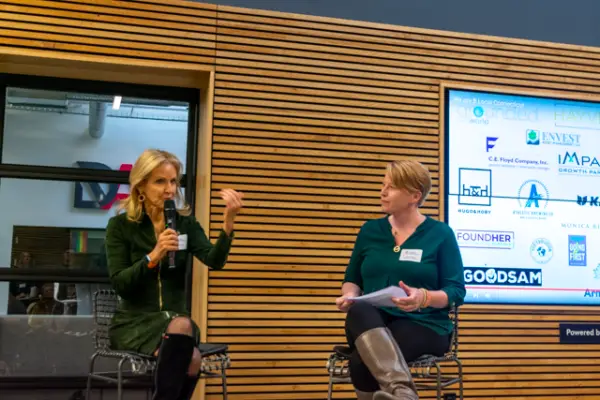New endeavor seeks to expand B Corp Certifications
Many consumers who are focused on social justice and environmental issues want the makers of their favorite consumer brands to share their level of concerns. For business owners, a B Corp certification can let customers know that they are dedicated to the same concerns and are working to address them.
B Local Connecticut is a new group dedicated to helping businesses across Connecticut understand, apply for, and maintain B Corp Certification. This corporate status is provided by B Lab, a nonprofit which assesses companies on how well they adhere to certain guidelines and principles regarding ethics and environmental impact ”“ among the most notable B Corp Certified companies are Ben & Jerry’s, Nespresso, Ecosia and The Body Shop.

B Local Connecticut had its official launched on Oct. 12 in a business forum at The District in New Haven. Jenifer Gorin, a co-founder of B Local Connecticut and the CEO and founder of Impact Growth Partners, a consulting firm which can help companies achieve B Corp certification, noted how B Corps are becoming more prevalent.
“We have entrepreneurs, we have investors, we have movement builders, people involved in many different ways to drive impactful business,” she said.
Jenn T. Grace, founder and CEO of Publisher Purpose, a publishing company featuring writers from underserved communities, is also a co-founder of B Local Connecticut. She defined a B Corp as “a company that has a high commitment to the environment and socially responsible practices,” but she also stressed that savvy consumers understood the value of B Corp certification.
“There’s no further conversation necessary,” she said. “I can think of three authors that I brought on in the last 18 months where there was literally no conversation. It was ‘you’re a B Corp, I’m a B Corp, we have to work together.'”
Grace was joined at the launch in conversation with Connecticut First Lady Annie Lamont, who discussed the path that led her from small-town Wisconsin to the heights of venture capital. Lamont detailed the efforts taken by her firm to improve not only its internal diversity, but the diversity of who they invest in, going from 1% of total investments going to companies with a female CEO to around 20%.
“Accountability is great,” Lamont said of the advantages that detail oriented approaches such as B Corp Certifications provide, comparing it to compliance forms in her own industry. “It makes all of these things top of mind, just makes people think about it in their lives and in their business and work and hopefully that ultimately makes a difference.”
Vincent Stanley, who holds the “director of philosophy” title at the outdoor gear brand Patagonia, shared the story of the path that led founder and CEO Yvon Chouinard to donate the company’s ownership to a trust that would ensure its profits are used for addressing climate change. Stanley recounted changing mission statements and experimental projects, including planting a new breed of grass designed to sequester carbon and flavor beer.
“That gave us an example of how to do something that actually gives back to the planet,” he said. “It’s no longer extractive, it’s regenerative and restorative and that became the north star for us in creating new products.”
Lorna Davis, former CEO of the organic and specialty foods producer Danone North America, explained why B Corp Certification was worth pursuing.
“You cannot run a business without also being an activist,” she said. “You have to decide whose side you are on, what you believe in, and you have to stand for that because if you don’t than people won’t work for you and people won’t buy what you sell.”